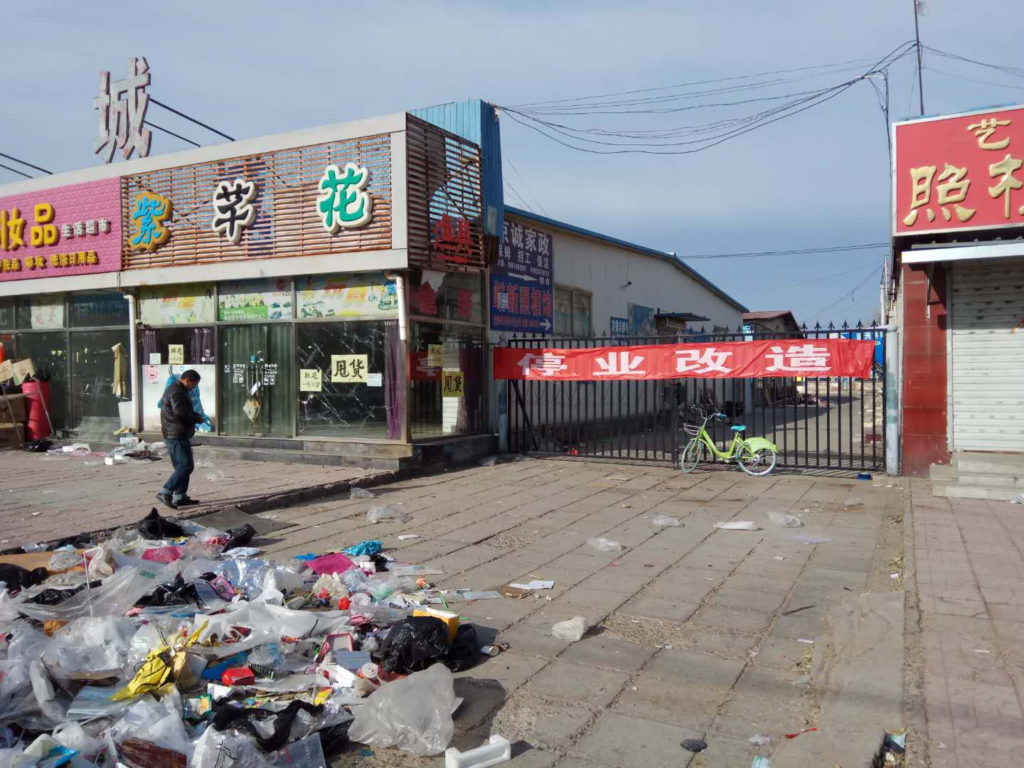Beijing continues to crack down on buildings which do not meet regulations – but questions are being raised as to the both the human and the economic cost of the drive.
We have previously reported on the impact on businesses popular with the international community. However there are much bigger and more significant issues at stake. Many of the structures being demolished are home to some of Beijing’s eight million “migrant workers”, and this has led to untold numbers being made homeless as winter bites.
It’s not only migrant workers who have suffered. Beijingkids has been told of young professionals being told to leave their homes at a few hours’ notice because the apartments were not designed for multiple occupation.
Besides their homes being demolished, much of the infrastructure which makes migrant workers’ lives possible is disappearing. Markets and street food vendors have been closing all across Beijing, and the closures have accelerated in recent weeks.

Houshayu market. The sign reads “Closed for reconstruction”
The clampdown is taking place for very good reasons. On November 18 a fire at a “hotel” in Daxing used as accommodation by migrant workers led to the deaths of 19 people. Nobody would disagree with the importance of preventing another such tragedy. The concern now though is that the disaster is being used as a pretext to reduce the city’s population.
The term “migrant workers” refers to people from other areas of China who have come to Beijing in search of work. While their presence in the city is not strictly illegal, they have no rights to housing, education or other state support. In September the Beijing government agreed a plan to cap the city’s population at 23 million by 2020, and action was already being taken to discourage migrant workers prior to the Daxing fire.
However migrant workers are in many ways the oil which makes the city work. They not only make up much of the construction workforce, but play an important part in recycling the 23,000 tons of waste produced by Beijingers every day. In addition they are the backbone of the city’s “kuaidi” delivery system, and the booming e-commerce sector which depends on it.
There’s no suggestion that the clampdown is being targeted at migrant workers. It’s clear that the rules are being applied rigorously and without favor. However they are disproportionately affected by it, and even Global Times has published an editorial questioning whether the authorities could take a more sympathetic approach to this important issue.
Photos: Andrew Killeen


